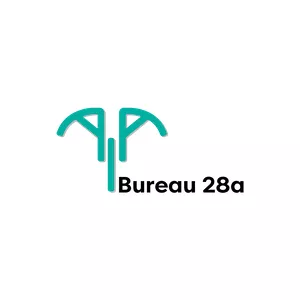- with readers working within the Utilities industries
AIRSPACE MANAGEMENT
On 4 July 2025, the Cabinet of Ministers approved the Rules for Use of Airspace and Conduct of Flights, adopted by Resolution No. 198. The Rules establish procedures for the use of airspace mandatory for all flight operators nationwide, including operators of unmanned aircraft systems. Foreign aircraft must comply with the Rules when flying in the country's airspace.
Just as the Rules of Ensuring Airworthiness and Serviceability of Civil Aircraft Registered in Foreign State and Implementing Requirements for Flight Crew and Flight Documentation, the new Rules are based on the Law, On Aviation, and the Chicago Convention; the Rules also refer to Annexes 2, 3, 6, 8, 10, 11, and 14 to the Convention, as well as the international standards and recommended practices by the International Civil Aviation Organization (ICAO). Updates that ICAO makes to the Annexes are incorporated into the Rules to the extent not contradicting Azerbaijani law.
Entities responsible for flight planning, air traffic services, and meteorological or aeronautical information support must ensure that their internal procedures and documentation comply with the requirements set out in the regulation.
A unified air traffic management system is established under the authority of the Interagency Group for the Coordination of Airspace and Air Traffic Management to ensure coordinated governance and oversight. This body is responsible for civil-military coordination and the general management of airspace use and allocation.
The regulation establishes procedures for conducting flight operations under both visual and instrument flight conditions. Operators are required to conduct thorough pre-flight planning, secure all necessary clearances, and maintain continuous communication with the relevant air traffic service units. The use of restricted, prohibited, or temporarily regulated airspace necessitates prior coordination and is governed by specific access protocols.
Furthermore, the regulation outlines mandatory obligations designed to ensure flight safety. Activities that represent a potential threat to individuals, property, or the integrity of operations are explicitly prohibited. Pilots bear personal responsibility for adhering to the relevant flight procedures and are permitted to deviate from these protocols only in emergency situations or where safety considerations warrant such deviations.
The framework also provides for the adaptable allocation and use of airspace, issuance of operational approvals, and implementation of oversight mechanisms. It recognizes the principles of equitable access while preserving the right to impose restrictions for reasons of national security or public safety.
Violations of the Rules may result in liability, including under the Code of Administrative Violations.
LEGAL COOPERATION WITH PAKISTAN
On 10 July 2025, the Ministry of Justice of the Republic of Azerbaijan and the Ministry of Law and Justice of the Islamic Republic of Pakistan inked the Cooperation Program. The Program comes in the aftermath of the Memorandum of Cooperation between the Ministries entered into 11 July 2024 and approved by the Azerbaijani Presidential Decree of 17 August 2024.
The Program is reported to call for planning of trainings on digital justice, application of artificial intelligence in justice, conducting scientific legal research, as well as organizing education and training, developing legislation, and cooperation in the field of alternative dispute resolution. The parties also agreed to prepare an Action Plan for the implementation of the Program.
As for the Memorandum, it calls for cooperation in harmonizing national legislations with international standards, promoting e-justice and access to justice, modernizing judicial systems and court administration, enforcement of court decisions, training of legal professionals and judges, and exchange of public legal materials. The Memorandum is effective for three years, automatically extended unless terminated with a six-month notice.
BILL OF INNOVATION ACTIVITY
Concept of Digital Development in Republic of Azerbaijan, approved by Presidential Decree No. 287 dated 16 January 2025, establishes a regulatory framework for digital transformation of public administration, economy, and society. The Concept defines strategic priorities, including the implementation of digital government platforms, enhancement of ICT infrastructure, deployment of artificial intelligence and blockchain technologies, and the development of interoperable information systems. It mandates the establishment of a unified digital governance structure under the coordination of the Ministry of Digital Development and Transport and introduces the role of a Digital Development Operator to oversee institutional alignment and project implementation.
Furthermore, the Concept emphasizes regulatory support measures such as the development and adoption of the Digital Code and Data Governance Strategy. It outlines priorities in cyber and information security, digital literacy, cloud computing, and the creation of an enabling environment for start-ups and private sector involvement. The integration of open data systems, expansion of broadband access, and development of digital public services based on the Government Cloud model are also foreseen as part of its phased implementation.
In furtherance of these objectives, the Ministry of Economy has reportedly sponsored and submitted the bill, On Innovation Activity, for the consideration of the Government.
The content of this article is intended to provide a general guide to the subject matter. Specialist advice should be sought about your specific circumstances.


